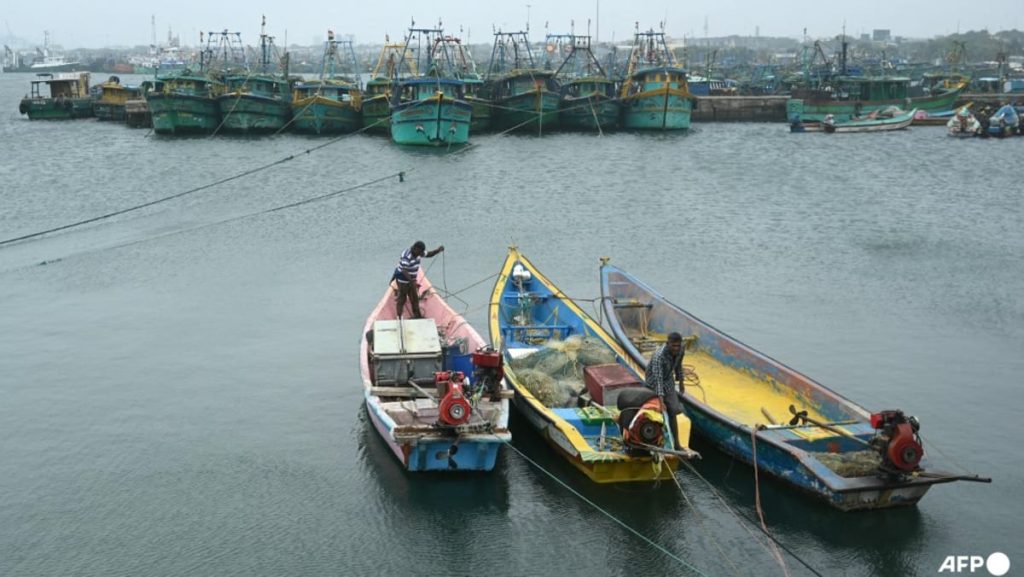The governments of India and Bangladesh have initiated a humanitarian gesture amidst ongoing diplomatic complexities, orchestrating the repatriation of 185 incarcerated fishermen. This reciprocal arrangement involves the release of 95 Indian fishermen from Bangladeshi custody and 90 Bangladeshi fishermen from Indian custody. The transfer is being executed at sea by the respective coastguard units of both nations. The majority of these fishermen were apprehended for inadvertently straying into the territorial waters of the neighboring country while pursuing their livelihood. This repatriation underscores the shared commitment of both nations to prioritize the well-being and economic sustenance of their fishing communities, despite prevailing political undercurrents.
The repatriation process marks a significant step in addressing the plight of fishermen who often become unwitting victims of maritime boundary disputes. The inadvertent crossing of maritime borders, often due to navigational errors or pursuit of fish shoals, leads to the apprehension and detention of these fishermen, disrupting their lives and impacting their families’ economic stability. The prolonged detention, in some cases extending to months, adds further hardship to their predicament. This exchange aims to alleviate these hardships and return the fishermen to their homes and families. The release also serves to mitigate the potential for escalating tensions between the two nations arising from such maritime incidents.
The agreement reached between India and Bangladesh reflects a shared understanding of the humanitarian dimensions of this issue. The decision to prioritize the “humanitarian and livelihood concerns of fishing communities,” as stated by the Indian Ministry of External Affairs, demonstrates a recognition of the vulnerability of these communities and the importance of protecting their fundamental rights. This act of cooperation transcends the immediate political context, highlighting the enduring human connections that bind the two countries. It showcases the potential for dialogue and collaborative solutions even in the face of strained diplomatic ties.
The exchange of detained fishing vessels alongside the fishermen further strengthens the cooperative nature of this initiative. The return of these vessels, crucial for the fishermen’s livelihood, underscores the commitment to restoring their economic independence. The repatriation of two Bangladeshi fishing vessels held in India and six Indian fishing boats held in Bangladesh signifies a practical approach to resolving the issue comprehensively. This aspect of the agreement reinforces the focus on the practical needs of the fishing communities affected by these maritime incidents.
The timing of this repatriation, occurring during a period of complex diplomatic relations between India and Bangladesh, highlights the importance of maintaining open channels of communication and prioritizing humanitarian considerations. While specific details of the diplomatic strains remain undisclosed, this gesture of cooperation suggests a willingness on both sides to engage in constructive dialogue and address issues of mutual concern. It demonstrates the potential for finding common ground and working towards amicable solutions, even within a challenging political environment. This exchange serves as a testament to the enduring ties between the two countries.
In conclusion, the repatriation of 185 fishermen by India and Bangladesh exemplifies a compassionate and pragmatic approach to resolving a recurring issue affecting vulnerable communities. This act of cooperation transcends political complexities, highlighting the importance of humanitarian considerations and the shared commitment to the well-being of fishing communities. The exchange of both fishermen and their vessels underscores the comprehensive nature of this initiative, aimed at restoring livelihoods and fostering a more humane approach to managing maritime boundary incidents. This act of goodwill serves as a positive step towards building trust and fostering stronger bilateral relations between India and Bangladesh. It also sets a precedent for other nations grappling with similar challenges, demonstrating the value of prioritizing humanitarian concerns in international relations.

